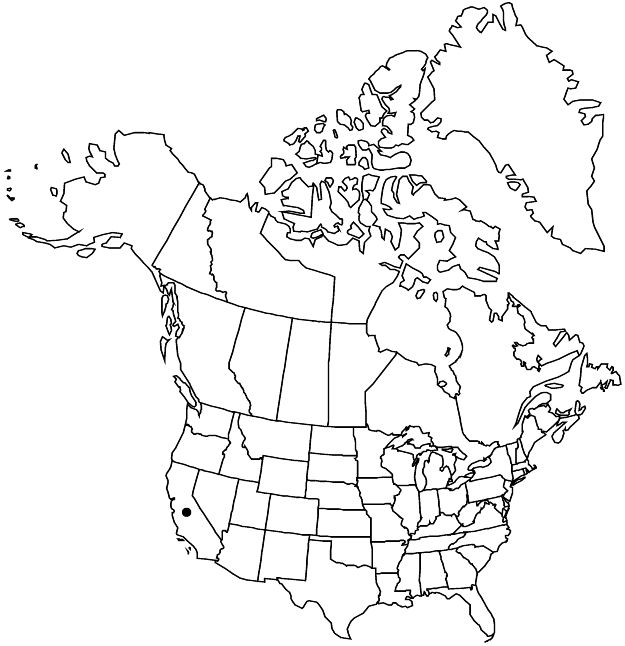Difference between revisions of "Ceanothus purpureus"
Fl. W. Calif., 258. 1901.
FNA>Volume Importer |
FNA>Volume Importer |
||
| Line 55: | Line 55: | ||
|publication year=1901 | |publication year=1901 | ||
|special status=Endemic;Conservation concern | |special status=Endemic;Conservation concern | ||
| − | |source xml=https://jpend@bitbucket.org/aafc-mbb/fna-data-curation.git/src/ | + | |source xml=https://jpend@bitbucket.org/aafc-mbb/fna-data-curation.git/src/f6b125a955440c0872999024f038d74684f65921/coarse_grained_fna_xml/V12/V12_782.xml |
|genus=Ceanothus | |genus=Ceanothus | ||
|subgenus=Ceanothus subg. Cerastes | |subgenus=Ceanothus subg. Cerastes | ||
Revision as of 18:20, 24 September 2019
Shrubs, 1–2 m. Stems erect to ascending, not rooting at nodes; branchlets reddish brown, sometimes glaucescent, rigid, glabrate. Leaves not fascicled, spreading to deflexed; petiole 0–2 mm; blade ± cupped, folded lengthwise adaxially, widely elliptic to widely obovate, 12–25 × 7–20 mm, base obtuse to cuneate, margins not revolute, spinose-dentate, teeth 7–15, apex rounded to sharply acute, abaxial surface pale green, sparsely strigillose, especially on veins, adaxial surface green to dark green, glabrous. Inflorescences axillary, 1.2–2.5 cm. Flowers: sepals, petals, and nectary deep blue to purple. Capsules 4–5 mm wide, lobed; valves smooth, horns subapical, prominent, slender, erect, intermediate ridges absent. 2n = 24.
Phenology: Flowering Feb–Apr.
Habitat: Rocky slopes and outcrops derived from volcanic substrates, chaparral, oak woodlands.
Elevation: 100–400 m.
Discussion
Ceanothus purpureus is endemic to the Vaca Mountains (Napa and Solano counties); it has been confused with C. jepsonii, which differs by its 6–8-merous flowers, rugose capsule horns, prominent ridges between the horns, and distribution on serpentine soils.
Selected References
None.
